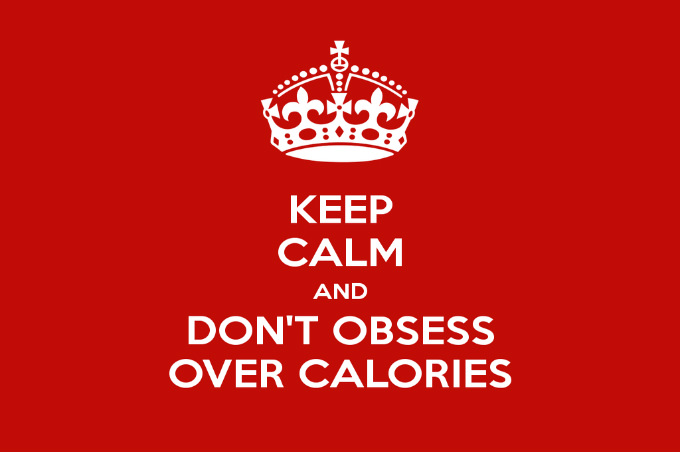Do you have a habit of obsessing over your calorie intake? Do you keep counting calories of foods you have already consumed and getting stressed about how many more calories you have left available until the day ends? Do you get upset if you happen to consume more calories than you planned out to consume during a certain period of time?
I think it is time to stop this obsession and think of a better way to approach this matter. Don’t get me wrong. I am not saying that you should eat whatever you want and as much as you want. But what I am trying to convey here is that it is time to change the tactics. The obesity problem is getting worse despite improved food labeling, the abundance of different fat-free foods, diet sodas, and slimming products.
It is all about the big picture: it matters more what you eat, how much you eat and how you eat as opposed to simply cutting down calories. But before we talk more about the big picture, let’s quickly look at what is calorie.
Calorie is a unit for measuring energy. A particular food’s calorific value equals to the energy released during metabolism. So, when you eat something, the chemical processes in your body release the energy “stored” in that food, which your body then uses for its activities, e.g. breathing, walking, lifting something, etc. When there are too many calories coming down our body, we store the excess energy as fat.
When you read any food label, you will notice that foods with lots of fat have many more calories than foods with similar amounts of proteins or carbohydrates. And, that’s when things may go wrong. People think that because they are eating fewer calories they will lose weight. Or when they eat any food with fat, their bodies will get fat. While this may be true to some extent, it is not always the case. For instance, did you know that fat reduces carbohydrate cravings? Therefore, you may end up consuming fewer calories eventually.
It gets even more confusing when you start overanalyzing different ingredients. For example, let’s take cholesterol and saturated fats. These were not included in the US government dietary guidelines until recently. All of a sudden, those guidelines have changed and now it is OK to consume foods with cholesterol and saturated fats in certain quantities.
There are other considerations as well. Is a diet soda/fizzy drink better than the regular one? It depends, although I would suggest not to drink soda unless you do it occasionally. Some people say that when you drink a can of regular soda it fills you up quickly and you don’t want to drink another one, while drinking a diet version will make you crave sugar even more. Also, diet sodas contain sugar substitutes that may cause cancer!
So, what shall we do in this complicated world of food? How can we see through different marketing tricks and half-truths from food companies? Here is the short list of obvious things that should help you with your healthy eating:
- Eat more vegetables, fruits and berries: this will help you to have a more balance diet.
- Don’t be scared of animal fats: Our grandfathers were quite healthy despite eating meat and fat. If you are a vegetarian or vegan, you can just ignore this one, of course.
- Eat in moderation: this doesn’t need any further explanation.
- Cut down on sugars: I personally blame obesity and many other health issues on excessive consumption of sugar. If you want to have a snack, eat some nuts instead.
- Fix your digestive system: take probiotics and eliminate Candida so that your body has better ability to absorb nutrients.
- Eliminate foods that upset your gut: you should avoid foods that cause bloating, diarrhea, constipation. Try gluten-free and/or casein-free diet or any other elimination diets, if necessary. They are not as scary as may seem at first.
- Eat freshly cooked food: avoid semi-ready foods that you can buy in the supermarkets. They may contain many nasty ingredients. Don’t be afraid to cook from the scratch: it is not that difficult and is actually fun. And, if you don’t know what to cook, try one of our many yummy recipes!
- Eat organic: you need to avoid pesticides, chemicals and additives in your food as much as you can.


Leave a Reply